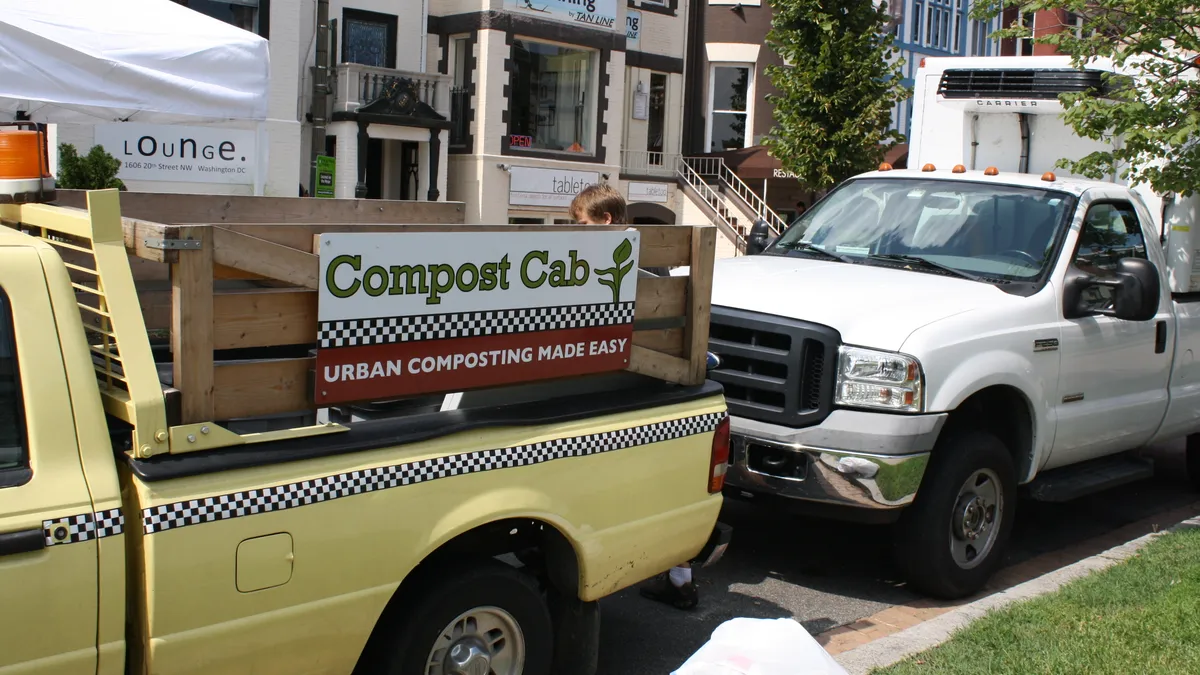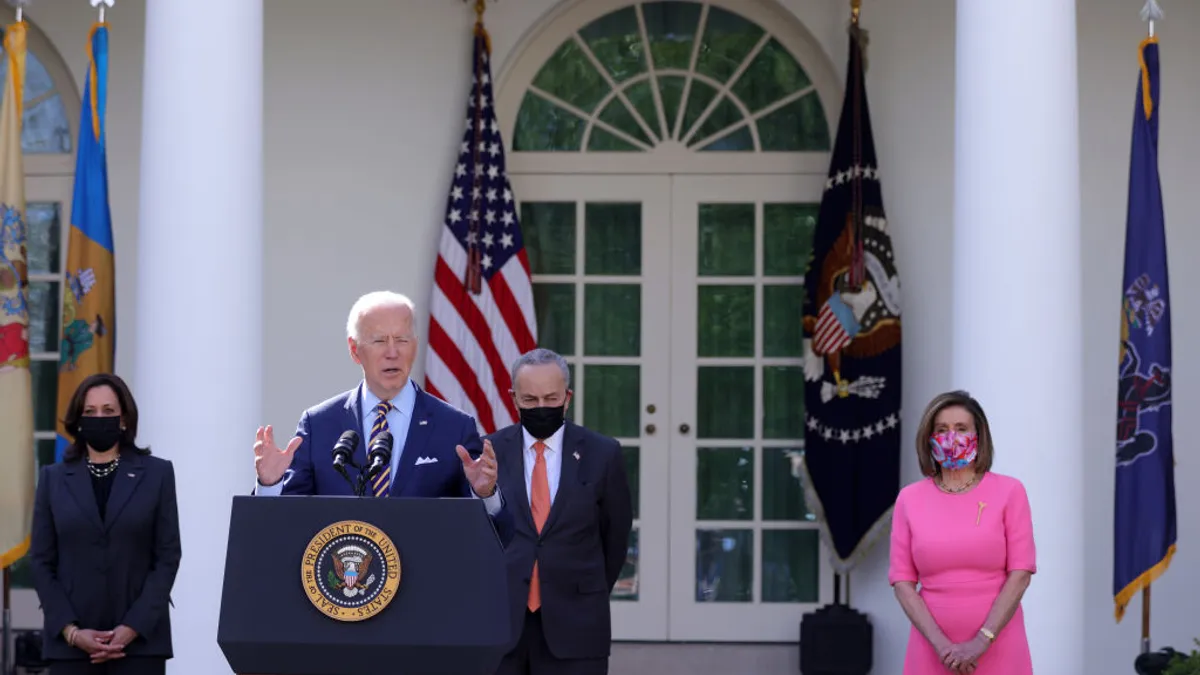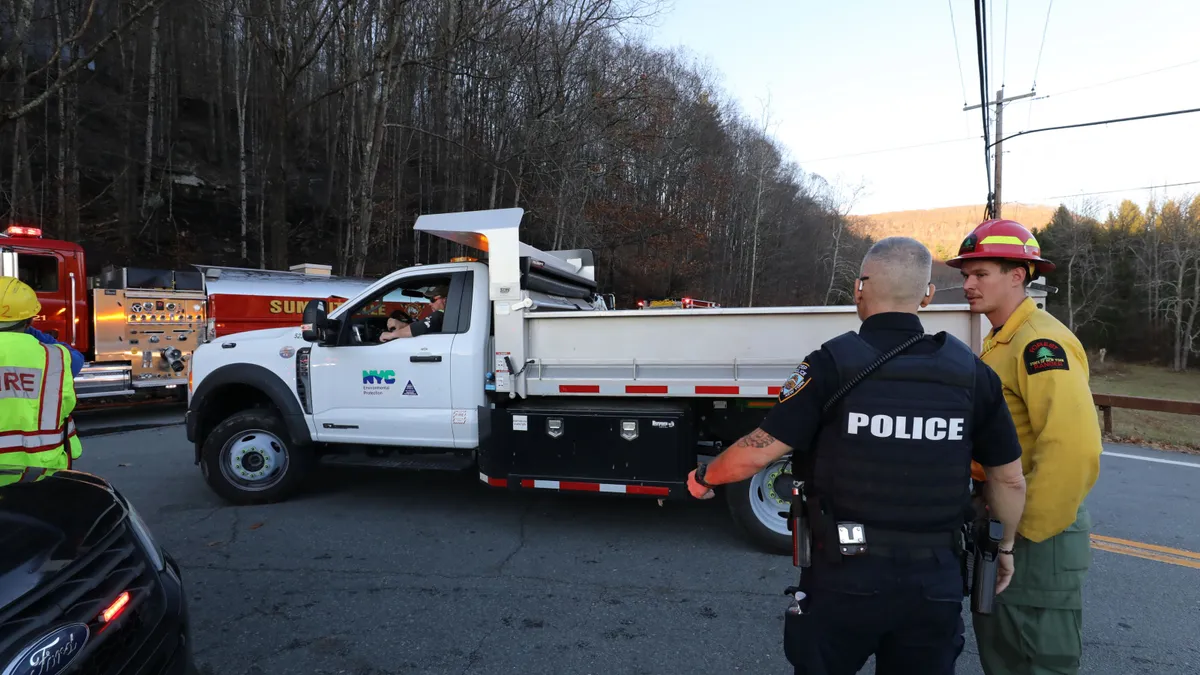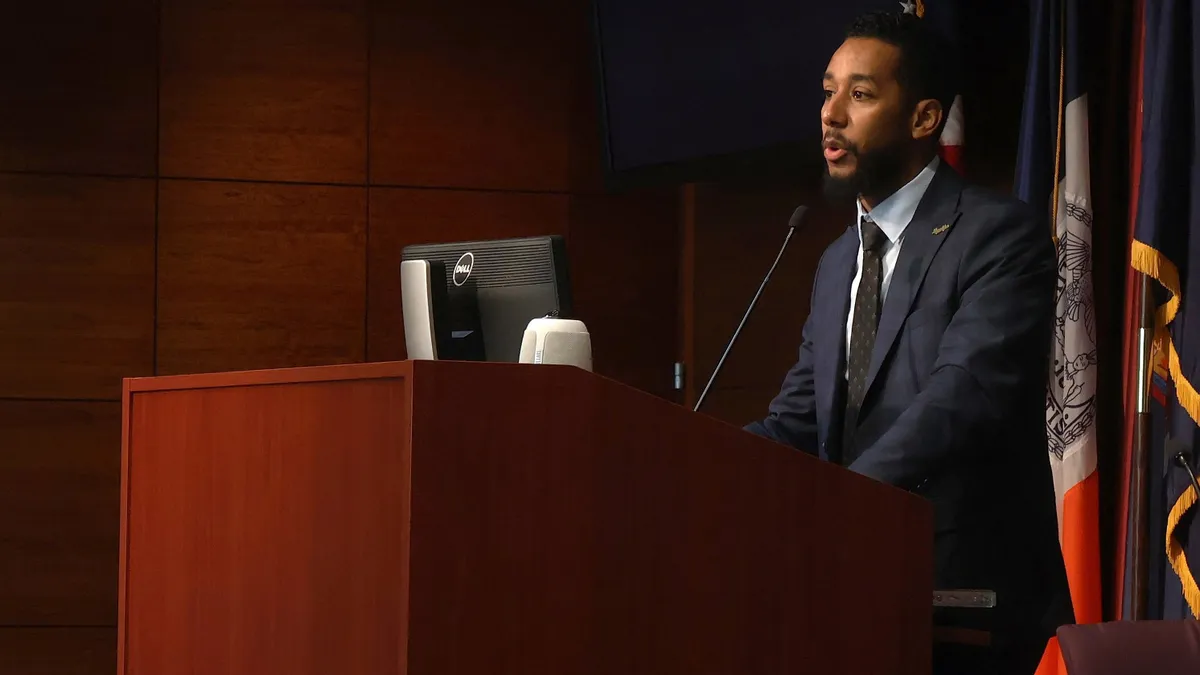The nation's capital is eyeing a major shift in how the city handles its waste, with outsized implications for organics and recycling.
Introduced last month by Council Member Mary Cheh, the “Zero Waste Omnibus Amendment Act of 2019” is part of a larger effort to ensure that Washington, DC remains on track to meet its goal of achieving "zero waste" by 2032. That benchmark, established in 2013, calls for 80% waste diversion in just over a decade. DC is lagging behind with a current citywide diversion rate of 23%. While not directly comparable, its rate is lower than some cities and counties with similar attributes.
Cheh, who is chair for the council's Committee on Transportation and the Environment, hopes to change that.
"[W]aste generation has harmful effects on our environment, health, and safety," Cheh said in a statement to Waste Dive, pointing to pollution issues along with methane emissions. In DC, Cheh said, waste is often hauled outside the city, leaving residents free to avoid worrying about it. She hopes her bill will change that by "improving our waste management system from multiple angles" and dramatically shifting the city's relationship with waste.
Change on all fronts
That sea change will require some habit changes from consumers, but much of the burden will rest with city businesses and industries. Per Cheh's description, the new bill relies on a "reduce, reuse, recycle" mindset that aims to tackle all parts of the waste system.
One major component addresses hotels and large restaurants, which would be required to provide reusable serviceware to customers and only offer disposable alternatives upon request. Establishments would moreover be tasked with sorting and composting food scraps and other organics, using either an onsite composter or a commercial alternative.
It is unclear how restaurants might address the serviceware change, but the Food Packaging Institute (FPI) has already expressed some reservations. In a statement to Waste Dive, the organization emphasized the importance of reducing waste and boosting foodservice package recovery, but asserted it will oppose any regulations limiting the use of that packaging.
"FPI hopes to work with the mayor’s office over the next year to help foster access to composting and recycling infrastructure in the District," said FPI Vice President Natha Dempsey.
The proposed legislation also takes aim at recycling infrastructure in the District, with an emphasis on "training and outreach guides" to educate the public on source separation, building on current Department of Public Works (DPW) practices.
Bars, restaurants, and similar establishments would also have to sort glass separately from other recyclables. Private collection companies would moreover be tasked with leaving tags flagging when customers have improperly recycled items, with the option of denying them service after multiple violations (with some exceptions). Meanwhile, a surcharge would be imposed on recycling disposed at transfer stations that exceeds contamination limits determined by the mayor. A plan for public space recycling infrastructure would also be required.
David Biderman, executive director and CEO for the Solid Waste Management Association of North America, told Waste Dive that the organization has not taken a "formal position" on the bill, but is closely reviewing the legislation's surcharge component.
"Other jurisdictions have considered methods like this to address contamination, and important questions remain about the logistics and feasibility of doing this effectively and equitably," Biderman said.
Other organizations with specialities in certain areas are welcoming the bill. Scott Cassel, CEO and founder of the Product Stewardship Institute (PSI), said his organization is supportive of the initiative's extended producer responsibility (EPR) components for batteries and sharps.
Under the bill, the city would establish an EPR program for primary and rechargeable batteries, as well as one for home-generated sharps. Retailers would be required to participate in battery stewardship organizations undertaking collection and recycling of that waste.
"The sharps issue is a very big issue for solid waste managers and others who get stuck by these needles in the waste stream," Cassel told Waste Dive. "There's billions of them in the waste stream across the United States and they need to be managed. EPR is a great system for managing them as well as for batteries."
While Cassel said PSI still wants to address some components of the bill with Cheh's office and the city, he emphasized the "multi-stakeholder process" laid out by the legislation would create a better environment for consumers. "There's no difference [between batteries] to the consumer and they should all be recycled," he said. "They can be recycled and they can be recycled best in an EPR system."
Still, even some supporters of the bill have highlighted what they feel are drawbacks. Neil Seldman, president of the DC-based Institute for Local Self-Reliance (ILSR), told Waste Dive the proposal "is a good bill" but that it ultimately "misses the main point of what's wrong with recycling" in the city.
"I approve of the measures suggested in the proposed bill, but I would prefer that the city council and the DPW focused on the major structural changes that need to be made in the city to make recycling work," Seldman said. He pointed to structural barriers to recycling in DC, including "processing recyclables out of town," not working to recover more scrap from e-waste, and allowing private haulers to pay low rates for the use of public facilities.
Still, Seldman caveated that the bill's measures largely "make sense" and "are doable."
Next steps
Nine out of 13 council members have already signed on to the bill, bolstering its chances of success. If the bill passes, it will join a host of environmental policies that have gained momentum in recent years as DC has pushed to address issues like climate change and littering.
The city currently has three plastics policies in effect, among them a ban on polystyrene foam foodservice products and a five-cent plastic bag tax. More recently, the city banned plastic straws, mandating that establishments offer compostables or other alternatives. According to the DC Department of Energy & Environment, compliance with those regulations has steadily increased since their respective implementations.
Cheh indicated DC is likely to continue pursuing aggressive environmental policies as the city strives to keep in step with other areas and overcome its lagging waste diversion rates.
"[The zero waste bill] would help us take a big step toward achieving our waste diversion goals and reducing the devastating impact that our waste has on the environment," Cheh said.



















